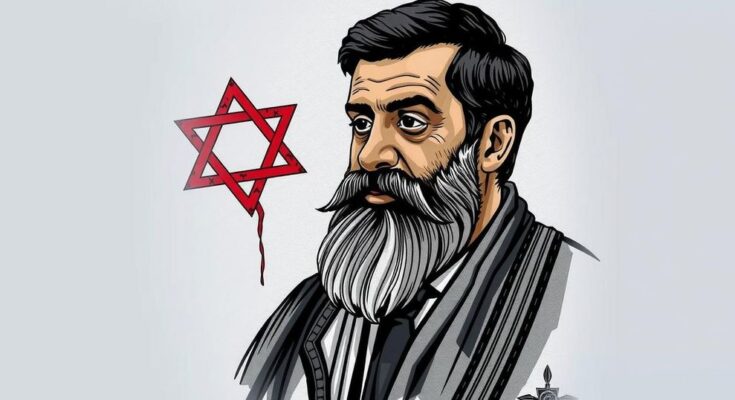Iran has executed Arvin Ghahremani, a 20-year-old Jewish man convicted of murder, after his family refused monetary compensation. His case, marred by allegations of antisemitism, raises global concerns about the Iranian justice system’s flaws and the treatment of minorities, particularly amidst escalating Iran-Israel tensions. International appeals failed to save him, highlighting the precarious situation of the Jewish community in Iran.
In a deeply troubling event that mirrors the darker chapters of history, Iran has executed Arvin Ghahremani, a 20-year-old Jewish man whose case drew international attention. Arrested over two years ago for killing a man during a financial dispute, Ghahremani’s death sentence came after the victim’s family rejected mediation efforts and blood money offers from his community. Ghahremani’s fate highlights the complexities of Iran’s justice system, which operates under Islamic Sharia law, demanding retributive justice while also allowing for financial compensation. His execution has stirred concerns about institutional antisemitism within Iran, particularly against the backdrop of rising tensions with Israel. Despite worldwide appeals and a temporary stay of execution earlier this year, Ghahremani was hanged at Kermanshah’s central prison. The nonprofit Iran Human Rights linked his execution to broader geopolitical conflicts involving Iran and Israel, emphasizing that Ghahremani’s Jewish identity undoubtedly influenced the judicial process that led to his sentence. Amidst this turbulence, the Kermanshah Jewish community made genuine attempts to rally support, circulating heartfelt messages and pleas for prayers, particularly from his tearful mother, as hopes waned against a backdrop of systemic bias and injustice. This tragic event is set against the backdrop of a dwindling Jewish population in Iran, where approximately 8,500 Jews remain. Their precarious existence is underscored by a history of persecution and a constant need for caution amidst rising anti-Jewish sentiments. The international Jewish community’s failure to intervene, even with offers to fund charitable projects in memory of the victim, underlines the complexities and challenges faced by Iranian Jews in navigating a system that seems to favor retribution over reconciliation, especially when racial and religious identities come into play. Ghahremani’s execution not only sheds light on the harsh realities of Iran’s penal system but also starkly illustrates the enduring scars of discrimination based on faith and ethnicity. The echoes of this tragedy resonate far beyond the courtroom, challenging observers to confront the uncomfortable realities of antisemitism within a modern judicial framework, where justice appears often elusive for minorities.
This article discusses the execution of Arvin Ghahremani, a young Jewish man in Iran, whose situation reflects broader issues of antisemitism and systemic bias within the Iranian judicial system. The case gained notoriety as it revealed the struggles faced by Jews in Iran, a community that has faced significant persecution since the Islamic Revolution in 1979. The complexities surrounding Ghahremani’s trial illustrate Iran’s adherence to Islamic Sharia law, the socio-political climate regarding Iran-Israel relations, and the impact of cultural and religious identities on legal outcomes.
Arvin Ghahremani’s execution is a chilling reminder of the prejudices that persist in judicial systems worldwide, particularly towards minority groups. It serves as a clarion call for greater awareness of antisemitism and the need for international advocacy to protect the rights of vulnerable citizens. This case emphasizes the urgent need for dialogue and reconciliation over retribution, urging the global community to reflect on the values of justice and equity that transcend borders.
Original Source: forward.com



